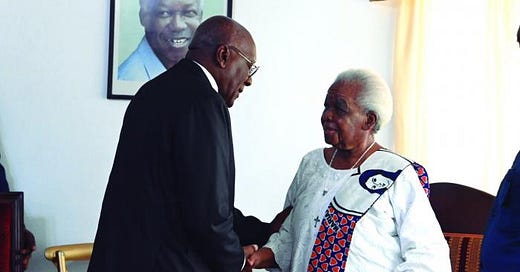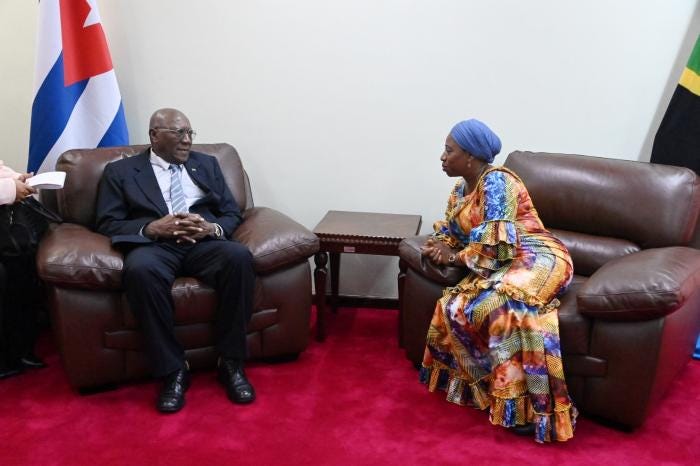After completing an intense work agenda in Uganda, Cuban Vice President Salvador Valdés Mesa and the Cuban delegation traveled to Dar es Salaam, for an official three-day visit in Tanzania from January 23 to January 25, 2024.
Cuba and Tanzania have agreed to heighten collaboration in high priority areas including agriculture, tourism, education, and health. The two nations signed two Memorandum of Understanding involving the Sokoine University of Agriculture and Cuba’s University of Artemisa Diaz Gonzalez, as well as the Tanzania Medical Department Authority and the Center for State Control of Medicines and Medical Devices in Cuba. The two nations are also interested in developing collaboration in sport, culture, tourism, technology transfer, and renewable energy. Announcement of the agreements were made during a joint press conference at the State House in Dar es Salaam, following a meeting between Tanzanian Vice-President Dr. Philip Mpango and Cuban Vice-President Salvad…



